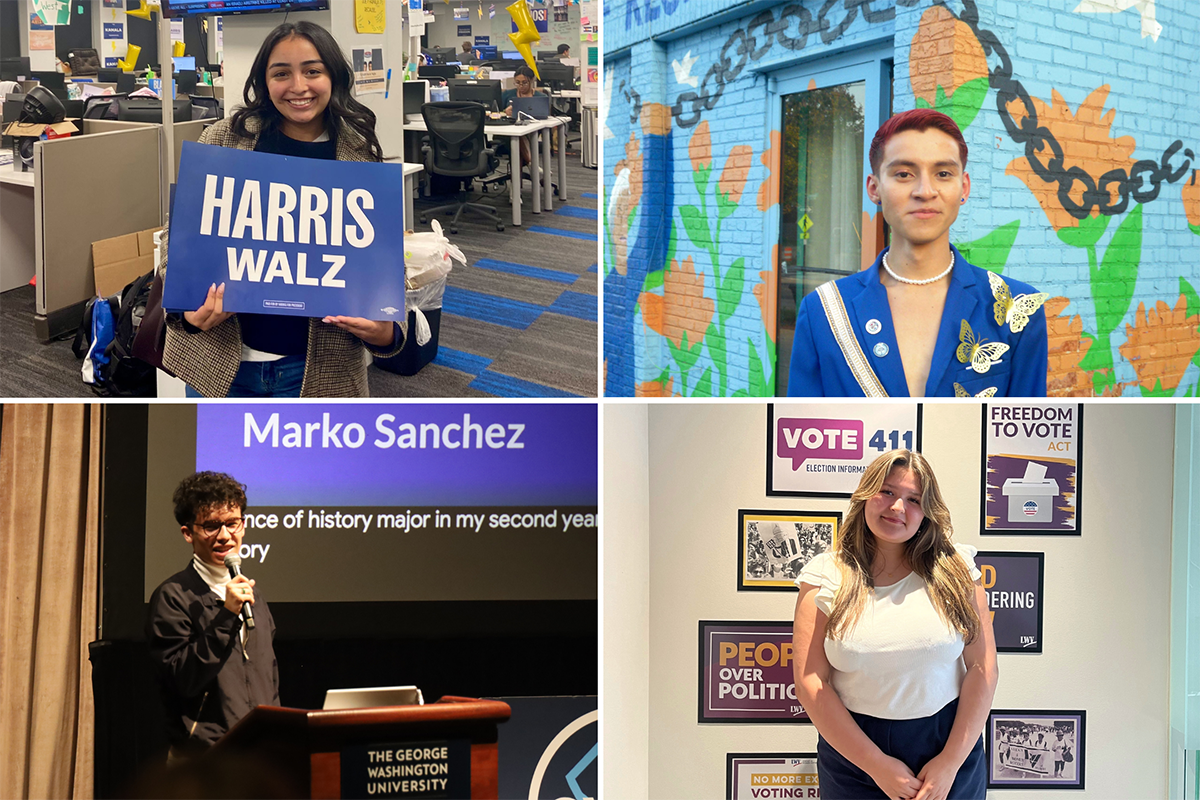This year’s election cycle has seen a growing focus on the role of Latinos, who are projected to account for 14.7% of eligible voters in 2024. The increased emphasis on the “Latino vote” is especially true in key swing states, where pundits, pollsters, media outlets, and campaigns are keen to understand the issues that matter to Latino communities.
While certain framings tend to portray Latinos as a monolithic group, it is important to recognize that no single voice can represent all Latinos. New voices are entering the political conversation, including many Cisneros Scholars who will be participating in their first presidential election.
The following conversations feature Cisneros Scholars who are actively engaged in this election, sharing in their own words what this experience means to them—from helping to register voters to interning for a presidential campaign.
Malyna Gomez Trujillo volunteers in the “Latinos con Harris-Walz" weekly bilingual phone banking sessions, participates in Voto Latino’s “Get Out the Vote” Zoom meetings, and works as a Mobilization Intern for the Harris for President campaign.
“As a Latina, as a woman, and as a daughter of a former farmworker, my family and I have experienced first-hand the injustices our communities face,” Gomez Trujillo shares. “I joined this campaign with my family and community in mind.”
Fellow classmate Claire Avalos shares similar feelings. As a Latina from a swing state, she feels that this election “could determine my autonomy as a woman and the livelihood of my family.” Avalos is politically active at GW, serving as an Undergraduate Senator in the Student Government Association, advocating for the Harris-Walz campaign and interning at the League of Women Voters. In this role, Avalos promotes voting access and civic engagement, especially as it relates to women’s rights and bodily autonomy.
For Javier Orellana, President of UndocuGW, his activism stems from his own experience as an immigrant. The student organization he leads partners with GW Votes and DC Board of Elections on National Voter Registration Day to encourage students, especially Latino students, to register and create a voting plan. During the “I Stand with Immigrants Day of Action” at GW, Orellana set up a table to educate voters on the election’s implications for immigrants and their families. For him, educating U.S. citizens about the issues that affect immigrants means, “caring for the future of my family and my community.”
As Vice President of Diversity & Inclusion and Digital Director for GW Democrats, Marko Sánchez uses their graphic design and writing skills to create graphics and social media content to engage students. Sánchez shares, “I like graphic design and doing it for the right cause makes it ten times more satisfying, apart from the fact that this election is very important.”
In addition to their role in GW Dems, Sánchez engages with other Cisneros Scholars with activities such as “Fantasy Election 2024,” a game in which scholars assume the role of pundits and make their best guesses about the outcomes of the presidential race and key state elections.
While Cisneros Scholars cannot represent the perspectives of all Latinos regarding the 2024 election, their informed voices provide a glimpse into some of the issues that young students care about, how they are utilizing their skills and voices, and what drives them to be engaged in this pivotal political moment.


